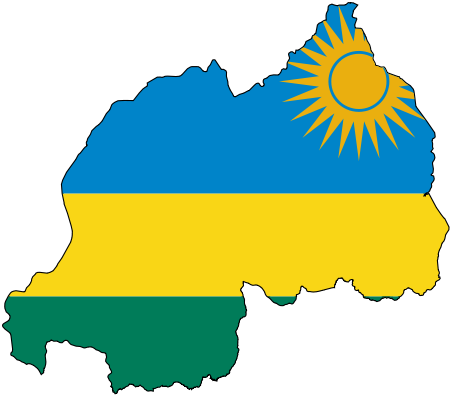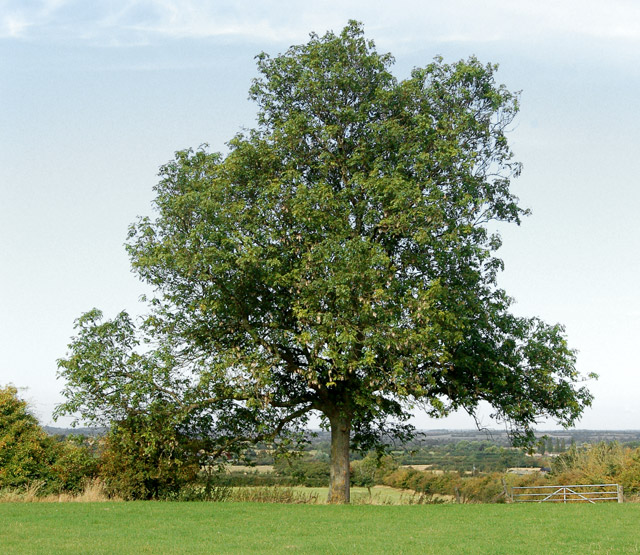Request for Information (RFI): Nonconventional Fusion Approaches and Energy Applications
Request for Information (RFI):
Nonconventional Fusion Approaches and Energy Applications This is a Request for Information (RFI) only.
This RFI is not soliciting application for financial assistance.
The purpose of this RFI is solely to solicit input for ARPA-E consideration to inform the possible formulation of future programs.
This RFI solicits input for a potential future ARPA-E research program on nonconventional fusion approaches and energy applications, defined further below.
This is a new “hybrid” RFI format where you may choose to (1) provide a written response, as with past ARPA-E RFI’s, and/or (2) participate in a related online “incubator” and “ask me anything” (AMA) session hosted on a platform developed by Polyplexus, LLC.
Guidance for (1) is provided at the end of this document.
For (2), please follow this weblink:
https://polyplexus.com/incubator?idIncubator=57 7. The incubator and AMA, which are scheduled from March 17 to April 7, 2021 and March 26 (1–3 PM EDT), respectively, are like an online chat forum that allows for dynamic, evidence-based discussions moderated by an ARPA-E Program Director, providing an opportunity for interested parties to actively influence the discussion and interact with the Program Director.
The incubator discussions and AMA will be visible to any registered Polyplexus user; registration is free and available to anyone according to the terms available at the site linked above.
Your participation in the incubator and AMA are not required in order to provide feedback on this potential future program, but strongly encouraged.
Recent studies show that including a firm, low-carbon primary energy source in the overall energy mix will dramatically lower electricity system costs in deep-decarbonization scenarios.
Fusion energy is one of a very few potential firm, low-carbon energy sources that can scale to global proportions, and is therefore an important technology option to develop, both to help meet mid/late-century decarbonization targets and to provide a long-term sustainable energy solution for humanity.
Worldwide fusion research and development (R&D) focuses on thermonuclear approaches using deuterium-tritium (D-T) fuel because (1) thermonuclear approaches appear to have the most likely path to demonstrating net energy gain, and (2) D-T has the highest thermal fusion reactivity at the lowest required temperatures of all known fusion reactions.
Significant progress has been and continues to be made toward demonstrating energy breakeven via thermonuclear D-T fusion, with recent community and expert panel reports all recommending that the U. S. should immediately increase investments in resolving the remaining scientific and technical issues in order to realize a “fusion pilot plant” (FPP) by or before 204 0. Indeed, ARPA-E’s ALPHA, BETHE, and GAMOW fusion programs all had or have an emphasis on enabling timely, commercially viable thermonuclear D-T fusion energy.
While thermonuclear D-T fusion is the most scientifically mature approach for realizing an FPP by 2040, it also faces daunting engineering challenges beyond the remaining physics challenges of achieving and sustaining high energy gain.
Two particular challenges that may increase cost, complicate regulations, and hinder public acceptance of thermonuclear D-T fusion are (i) lack of naturally abundant tritium, necessitating tritium breeding and relatively large onsite tritium inventory, and (ii) approximately 80% of the fusion energy released as 1 4. 1-MeV neutrons that damage and activate materials in the surrounding structure, requiring new low-activation materials and producing low-level waste (LLW) requiring short-term radiological disposition.
These challenges, though being actively addressed with potentially viable solutions, motivate the continued pursuit of nonconventional fusion approaches that may sidestep or mitigate these challenges and potentially better fulfill the holistic socio-techno-economic requirements of a commercially attractive energy system.
Seeking broad input on nonconventional fusion approaches, i.e., other than thermonuclear D-T, is the first objective of this RFI.
Pursuit of fusion energy is typically motivated by grid-scale electricity as the eventual application.
However, grid-scale electricity is highly competitive with extremely low costs in certain markets (e.g., see Handley et al.
in footnote 5), which is a headwind for fusion development.
Thus, a second objective of this RFI is to seek input on potential energy-related applications, other than grid-scale electricity, for fusion or its enabling technologies.
Although we are open to hearing about niche, high-value applications, any potential ARPA-E program arising from this RFI should support technologies that could scale to “quad-level” energy impacts and/or “gigaton-level” carbon-emissions reductions, domestically or worldwide.
Examples include but are not limited to applications of large fusion-generated energetic neutron or charged-particle fluxes, low- or high-grade process heat below approximately 1000 K, or new markets that might be enabled by a dense energy source sited in the middle of population centers or if micro-reactor-class (e.g., kW to 50 MW) fusion systems can be successfully developed.
To view the RFI in its entirety, please visit https://arpa-e-foa.energy.gov.
The information you provide may be used by ARPA-E in support of program planning.
THIS IS A REQUEST FOR INFORMATION ONLY.
THIS NOTICE DOES NOT CONSTITUTE A FUNDING OPPORTUNITY ANNOUNCEMENT (FOA).
NO FOA EXISTS AT THIS TIME.
Nonconventional Fusion Approaches and Energy Applications This is a Request for Information (RFI) only.
This RFI is not soliciting application for financial assistance.
The purpose of this RFI is solely to solicit input for ARPA-E consideration to inform the possible formulation of future programs.
This RFI solicits input for a potential future ARPA-E research program on nonconventional fusion approaches and energy applications, defined further below.
This is a new “hybrid” RFI format where you may choose to (1) provide a written response, as with past ARPA-E RFI’s, and/or (2) participate in a related online “incubator” and “ask me anything” (AMA) session hosted on a platform developed by Polyplexus, LLC.
Guidance for (1) is provided at the end of this document.
For (2), please follow this weblink:
https://polyplexus.com/incubator?idIncubator=57 7. The incubator and AMA, which are scheduled from March 17 to April 7, 2021 and March 26 (1–3 PM EDT), respectively, are like an online chat forum that allows for dynamic, evidence-based discussions moderated by an ARPA-E Program Director, providing an opportunity for interested parties to actively influence the discussion and interact with the Program Director.
The incubator discussions and AMA will be visible to any registered Polyplexus user; registration is free and available to anyone according to the terms available at the site linked above.
Your participation in the incubator and AMA are not required in order to provide feedback on this potential future program, but strongly encouraged.
Recent studies show that including a firm, low-carbon primary energy source in the overall energy mix will dramatically lower electricity system costs in deep-decarbonization scenarios.
Fusion energy is one of a very few potential firm, low-carbon energy sources that can scale to global proportions, and is therefore an important technology option to develop, both to help meet mid/late-century decarbonization targets and to provide a long-term sustainable energy solution for humanity.
Worldwide fusion research and development (R&D) focuses on thermonuclear approaches using deuterium-tritium (D-T) fuel because (1) thermonuclear approaches appear to have the most likely path to demonstrating net energy gain, and (2) D-T has the highest thermal fusion reactivity at the lowest required temperatures of all known fusion reactions.
Significant progress has been and continues to be made toward demonstrating energy breakeven via thermonuclear D-T fusion, with recent community and expert panel reports all recommending that the U. S. should immediately increase investments in resolving the remaining scientific and technical issues in order to realize a “fusion pilot plant” (FPP) by or before 204 0. Indeed, ARPA-E’s ALPHA, BETHE, and GAMOW fusion programs all had or have an emphasis on enabling timely, commercially viable thermonuclear D-T fusion energy.
While thermonuclear D-T fusion is the most scientifically mature approach for realizing an FPP by 2040, it also faces daunting engineering challenges beyond the remaining physics challenges of achieving and sustaining high energy gain.
Two particular challenges that may increase cost, complicate regulations, and hinder public acceptance of thermonuclear D-T fusion are (i) lack of naturally abundant tritium, necessitating tritium breeding and relatively large onsite tritium inventory, and (ii) approximately 80% of the fusion energy released as 1 4. 1-MeV neutrons that damage and activate materials in the surrounding structure, requiring new low-activation materials and producing low-level waste (LLW) requiring short-term radiological disposition.
These challenges, though being actively addressed with potentially viable solutions, motivate the continued pursuit of nonconventional fusion approaches that may sidestep or mitigate these challenges and potentially better fulfill the holistic socio-techno-economic requirements of a commercially attractive energy system.
Seeking broad input on nonconventional fusion approaches, i.e., other than thermonuclear D-T, is the first objective of this RFI.
Pursuit of fusion energy is typically motivated by grid-scale electricity as the eventual application.
However, grid-scale electricity is highly competitive with extremely low costs in certain markets (e.g., see Handley et al.
in footnote 5), which is a headwind for fusion development.
Thus, a second objective of this RFI is to seek input on potential energy-related applications, other than grid-scale electricity, for fusion or its enabling technologies.
Although we are open to hearing about niche, high-value applications, any potential ARPA-E program arising from this RFI should support technologies that could scale to “quad-level” energy impacts and/or “gigaton-level” carbon-emissions reductions, domestically or worldwide.
Examples include but are not limited to applications of large fusion-generated energetic neutron or charged-particle fluxes, low- or high-grade process heat below approximately 1000 K, or new markets that might be enabled by a dense energy source sited in the middle of population centers or if micro-reactor-class (e.g., kW to 50 MW) fusion systems can be successfully developed.
To view the RFI in its entirety, please visit https://arpa-e-foa.energy.gov.
The information you provide may be used by ARPA-E in support of program planning.
THIS IS A REQUEST FOR INFORMATION ONLY.
THIS NOTICE DOES NOT CONSTITUTE A FUNDING OPPORTUNITY ANNOUNCEMENT (FOA).
NO FOA EXISTS AT THIS TIME.
Related Programs
Advanced Research and Projects Agency - Energy Financial Assistance Program
Department of EnergyObtain Full Opportunity Text:
ARPA-E eXCHANGE
Additional Information of Eligibility:
Please see full announcement.
Full Opportunity Web Address:
https://arpa-e-foa.energy.gov
Contact:
Agency Email Description:
Click to email contact
Agency Email:
Date Posted:
2021-03-17
Application Due Date:
Archive Date:
2021-05-30
Social Entrepreneurship
Spotlight
Rwanda as Social Entrepreneur Fund Beneficiary

The Republic of Rwanda has been picked as one of the six African countries as beneficiaries for a new fellowship fund program designed at supporting social entrepreneurs in tackling issues on food security.

